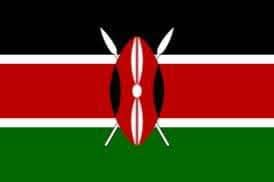Madaxweyne Donald Trump ayaa amray in ciidamada Mareykan ah loo diro magaalada Portland ee gobolka…
Israel expanding ground offensive into central Gaza refugee camps
BBC News
Published: Dec.27,2023 6.27 PM(EAT)
Israel is expanding its ground offensive into Palestinian refugee camps in central Gaza, as it warns the war with Hamas will last for months.
The UN has expressed grave concern after Israeli strikes reportedly killed dozens of people in Bureij, Nuseirat and Maghazi camps in recent days.
Heavy fighting is also continuing to the south, in the city of Khan Younis.
Meanwhile, the Palestinian president has described what is happening in Gaza as “beyond a war of annihilation”.
The Hamas-run health ministry has said at least 195 people have been killed across the territory over the past 24 hours.
More than 21,100 have been killed – mostly children and women – during 11 weeks of fighting, according to the ministry.
The war was triggered by an unprecedented cross-border attack by Hamas gunmen on southern Israel on 7 October, in which at least 1,200 people were killed – most of them civilians – and about 240 others taken hostage.
Palestinian media cited local officials and witnesses as saying dozens of civilians were killed as Israel kept up its strikes across Gaza overnight.
Heavy bombardment was reported in the Middle Area, particularly in Bureij, Maghazi and Nuseirat camps.
In Nuseirat, Israeli warplanes targeted the homes of the Nasser and Hazouqi families, killing a number of people and wounding dozens more, according to the official Wafa news agency.
Hamas-affiliated Safa news agency also reported that five had been killed in a strike on a girls school in Maghazi.
Residents meanwhile told Reuters news agency that there was heavy fighting east and north of Bureij district and in the nearby village of Juhr al-Deek.
There was no immediate comment from the Israel Defense Forces (IDF), but spokesman Rear Admiral Daniel Hagari told reporters on Tuesday evening that its forces had “expanded the combat to the area known as the Central Camps”.
The IDF also reiterated on Tuesday its order for residents to leave more than a dozen central areas running from the Gaza-Israel perimeter to the coast, including Bureij and Nuseirat camps.
According to the UN, the affected areas were home to nearly 90,000 people before the war. They also now include six shelters hosting about 61,000 displaced people, mostly from the north.
The residents have been told to move immediately to shelters in the nearby town of Deir al-Balah, which is already struggling to cope with several hundred thousand displaced people.
The UN human rights office said on Tuesday that it was gravely concerned about the continued bombardment of the Middle Area and its densely populated camps, citing a report from Médecins Sans Frontières (MSF) that Deir al-Balah’s al-Aqsa hospital had admitted 131 dead following Israeli strikes on Maghazi and Bureij on Sunday.
It also warned of a “deepening and already catastrophic humanitarian situation”, saying that all roads connecting the three camps had been destroyed and that any shelters and hospitals still operating were critically overcrowded and under-resourced.
A Palestinian woman living in the UK, Alaa, told the BBC that her family had been in Maghazi during Sunday’s strikes and were “having to live with… constant loss, constant fear”.
“Pulling people from under the rubble and losing friends, losing family members, being displaced, losing homes,” she said. “My four-year-old nephew, he had to evacuate with my family the other day and he was crying, asking for his dad who was killed a month ago.”
The IDF’s chief of staff, Lt Gen Herzi Halevi, warned that the fighting with Hamas was taking place in “a complex area” and would therefore “continue for many more months”.
“There are no magic solutions or shortcuts in the fundamental dismantling of a terrorist organisation, except persistent and determined fighting, and we are very, very determined,” he added.
“We will also get to the Hamas leadership, whether it takes a week or months.”
He was speaking amid new signs of rising regional tensions with incidents linked to Iran-backed groups in the Red Sea, on the Lebanese border and in Iraq.
In his first interview since the start of the war, the Palestinian President Mahmoud Abbas – a political rival of Hamas who is based in the Israeli-occupied West Bank – said it was unprecedented in Palestinian history.
“What’s happening in the Palestinian territories is far beyond a disaster and far more than a genocide. The Palestinians have never seen anything like this,” he told Egypt’s ON TV.
“Even during the Nakba catastrophe in 1948. What’s happening today is far worse,” he added, referring to the Middle East war that followed Israel’s declaration of independence in 1948, when hundreds of thousands of Palestinians fled or were forced out of their homes.
Mr Abbas also warned that the West Bank could implode at any time.
On Wednesday, six Palestinians, including a 17-year-old boy, were killed in a drone strike during an Israeli raid on a refugee camp near the western West Bank town of Tulkarm, according to the Palestinian health ministry.
The IDF said six “armed terrorists” were killed in an air strike after they threw explosive devices at troops carrying out an operation to arrest wanted people.



slot gacor: Slot Online Gacor Situs Judi Gampang Maxwin Terbaik